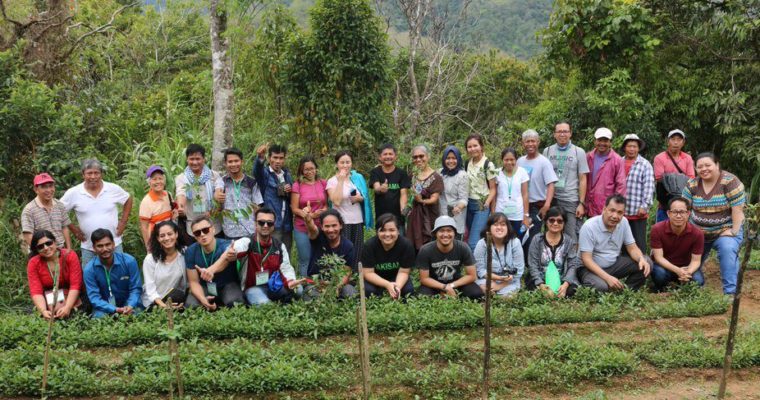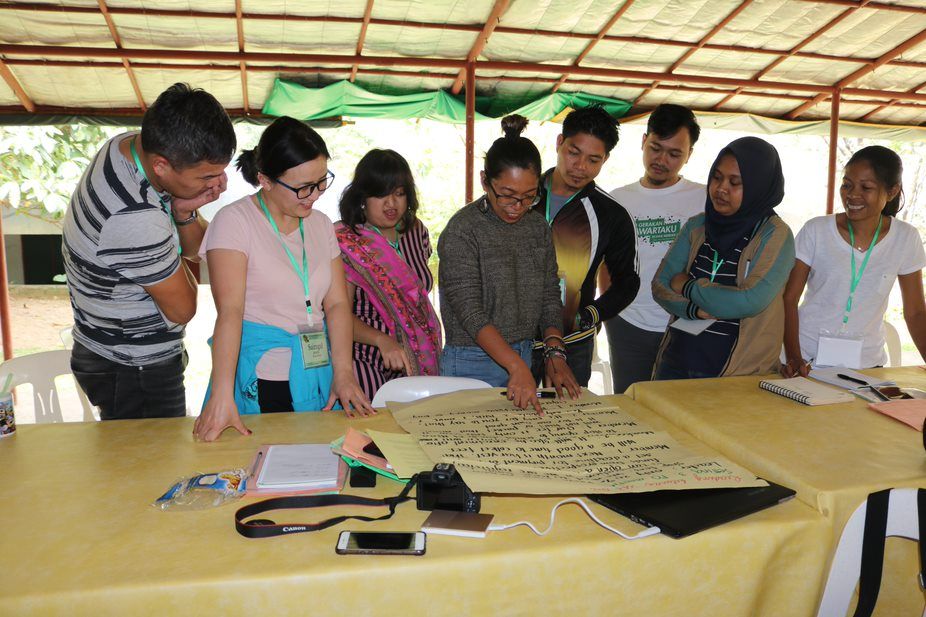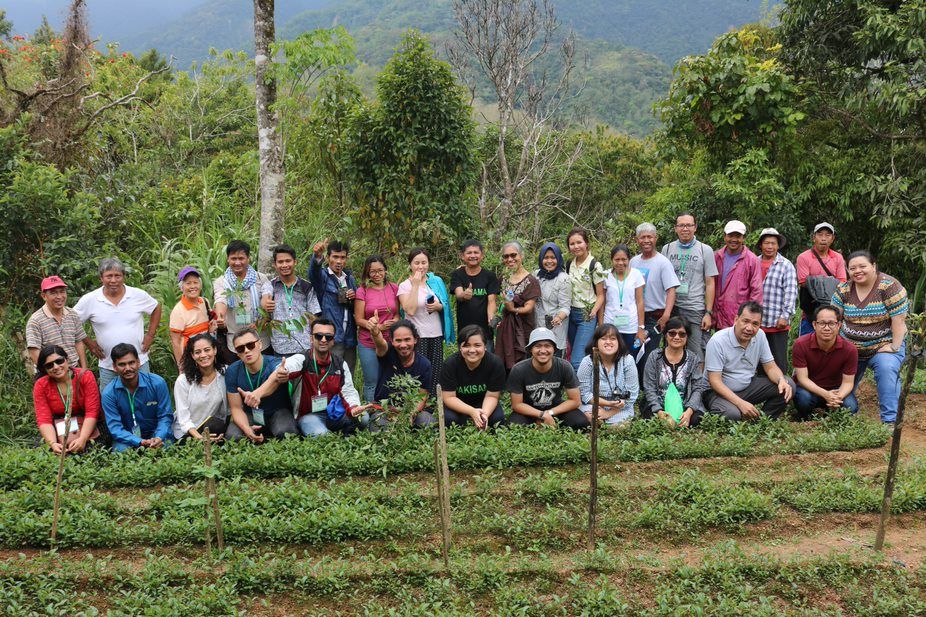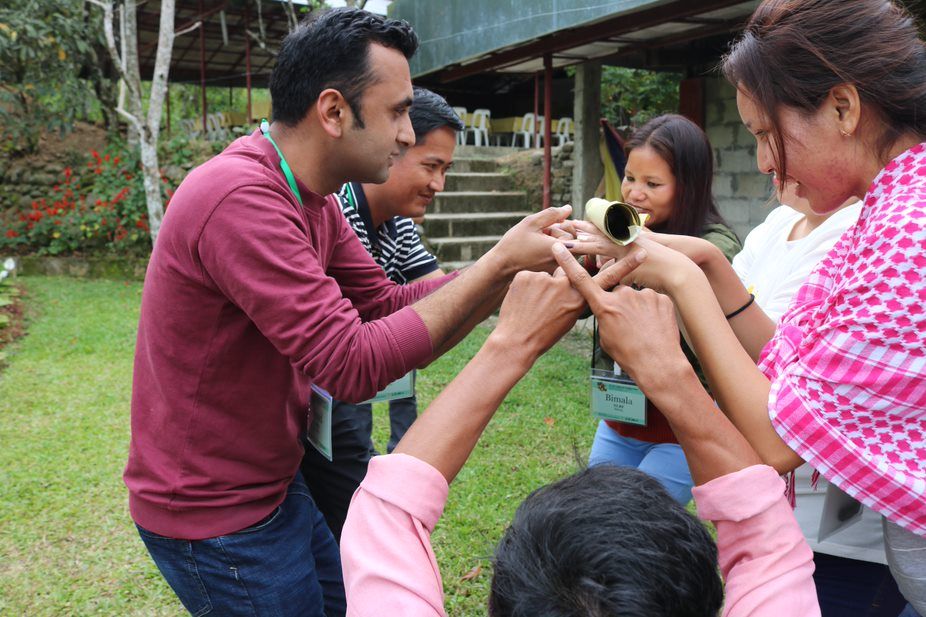Addressed to, and led by members, the ILC Leadership Programme has gathered 38 women and 29 men from 33 ILC members of Africa, Asia and Latin America
Think of the area where you live. Think of the community to which you belong. Think of the relationship between your territory and your community. No matter how big the one or the other, you expect that the two are in harmony. Whatever challenge or opportunity comes next, you expect that your community leaders will be there and always stand up for you and your environment. No disruptions admitted. This is where you live.
The real challenge is to maintain continuity in the relationship between the community and its territory. Your community leaders are the primary shield to your territorial identity and unity. But what happens if your leaders are unable to resolve the challenges or to keep your community cohesive?
These are the challenges grassroots leaders including advocacy groups and NGOs, face today when their communities are confronted with changing land legislation and policies, foreign investment, variable and extreme climate events, etc. How can you work with leaders and help them in their role? How can you be a leader of tomorrow? What is your role within your community? These were some of the pressing questions that ILC grassroots organisers and their allies dealt with during a recent immersive leadership training in the Philippines.
Despite the fact that challenges will always exist, the power of success is huge and inspiring. In 1974, the Ikalahan people had their tenure to 15,000 hectares of ancestral land recognized by the national government, becoming the first indigenous community in the Philippines to achieve such a victory. And it changed it all! It set a precedent followed by many groups in fighting for land rights and recognition to manage natural resources. Their ancestral land covers 56,000 hectares, and the community is the first in Asia to document their forest carbon sequestration capacity and sell carbon credits on the open market. How did they do it? With cohesive leadership that ensures community and territory remain inseparable over time.
It was precisely at the Ikalahan’s training centre where the 20 young leaders of the ILC Asia Leadership Programme spent the first days of their 11-day training. There, they got to learn about how leaders worked to keep the territory as an inherent part of the community to continue their way of life. The training went from 10 to 20 March 2019,and is part of a global effort promoted by ILC since 2018 to support leadership development and organizational capacities.
Youth and women leaders at the centre
At the backdrop of the Asian programme is the joint work of the Asian Farmers Association (AFA), Pakisama and the ILC to create opportunities for peer-learning and collaboration for young leaders. The main goal? To increase their capacities and engagement as young successors to civil society organisations’ leadership roles, equip them with skills to guide their communities and organisations in growing stronger, and build a community of collaboration and practice.
The programme’s cohort is composed of 10 women and 10 men young leaders from 11 ILC Asia members and their partner grassroots organisations coming from 7 countries of South, Southeast and Central Asia[1]. Through in-class and group activities, cultural sessions and field visits, these second-line leaders passed through the individual, organizational and systemic leadership modules to learn, unlearn and think critically about what leadership means for them and their communities, and what their roles in ensuring the continuity of their communities and territories are.
Leadership comes with both localism and universal identity-building. “We get to have a sense to be an Asian beyond our nationalities. We find common issues within our diverse communities, between our nationalities, issues of land injustice, gender injustice, ethnicity injustice. And we find different approaches on how to address them. At the same time, we find universal principles: authentic humanism, becoming more self-reliant, being interdependent with other individuals and communities towards a mature way of approaching ourselves and society” (Socrates Banzuela, Executive Director of PAKISAMA).
The territory: a call for leadership
When communities, territory and leadership work in sync, their potential in building inclusive development paths is huge. The Ikalahan community is an example of this. Their most remarkable success over the last 40 years has been in their capacity to keep their land, their community and their leadership in a transformative vision with identity. An identity where their land has played a big role.
Ikalahan leaders talked through with participants how they acted to continuously maintain and breed these multiple linkages between communities and their land in the context of both desiredand unexpected changes. Participants were invited to reflect on this and on their role in how to maintain theunity and stability of the communities and territories they belong to or work with. What is your call from the territory? What moves your minds, your bodies and your hearts to work for it? What to do to ensure next generations of grassroots leaders are not separated from their communities, or come back to become community resources? How to ensure the continuity of ancestors’ struggles? How to face global challenges and their possible threats to this continuity while maintaining local cohesion?
“The capacity of future leaders to aspire is very important. Aspiration needs to be developed. We have to elicit it, to take it out, to make youth create it” (Noer Fauzi Rachman, academic activist and independent resource person). Aspiring and learning. Learning the history of a territory and a community in order to understand the new context, the forces at play and the challenges as young leaders. And also “unlearning the failures of the senior leaders and being yourself to keep yourself confident in making a difference” (Noer Fauzi Rachman).
“For me the pastoralist territory is our way of life. If territory is not with us we will not survive. The territory is also part of our culture, we celebrate it. We keep community and territory together and knowledge is shared from elders to young leaders based on this” (Bhavana Desai, pastoralists’ women leader, MARAG).
Synergies for stronger action
What comes next? A mentoring phase with first-line leaders of participating organisations accompanying their young counterparts in the implementation of their re-entry plans and the exploration of new ways of practicing leadership. Next stages are expected to include other face-to-face trainings, virtual exchanges and mobilisation actions.
A commitment to leadership means believing in the potential of youth and women, in the strength of communities in land rights struggles, and in the importance of renewed, cohesive and networked grassroots leadership. “This kind of diversity needs to be encouraged. Investing resources in this on this kind of gathering and capacity building experience is about investing in the future” (Socrates Banzuela, Pakisama).
Diversity is one of our main forces as a global Coalition. Let’s use it and come as ILC members, strategic partners and potential allies together with ideas and resources to facilitate opportunities like this one: spaces for real participation, ownership, and democratization of power in order to progress towards people-centred land governance.
[1] Star Kampuchea from Cambodia; RMI and KPA from Indonesia; Pakisama, PAFID and AFA from the Philippines; KAFLU from Kyrgyzstan; ALRD from Bangladesh; MARAG from India; and CSRC and NLRF from Nepal.







Comments are closed